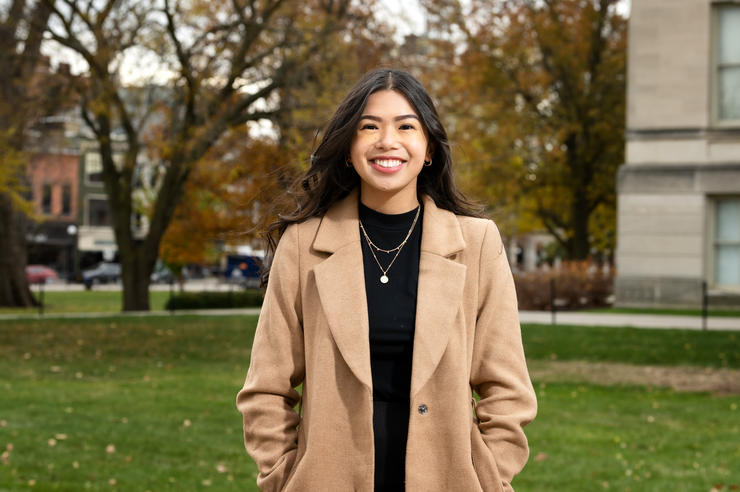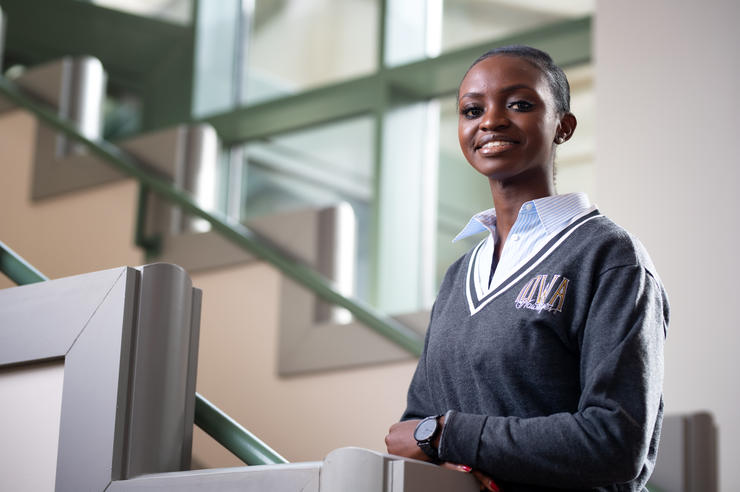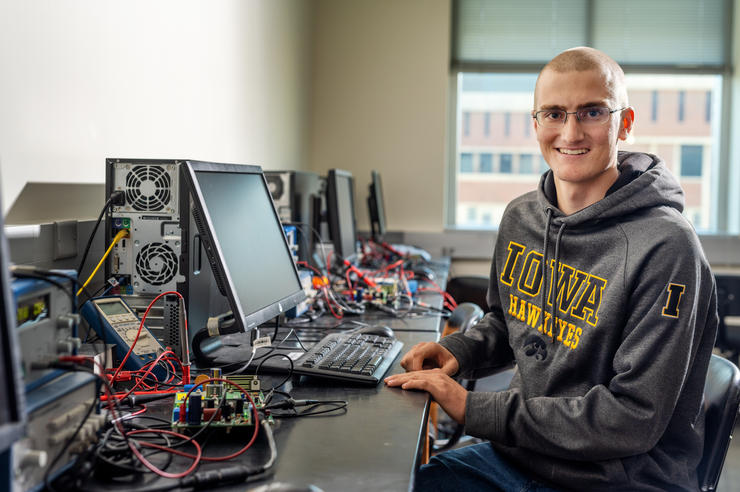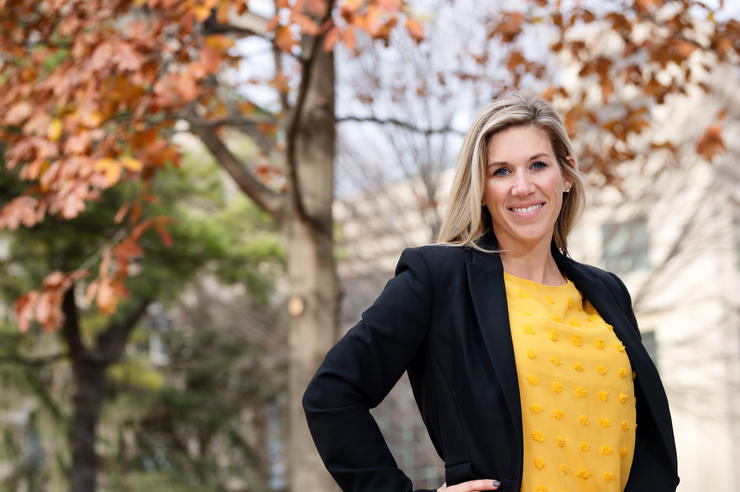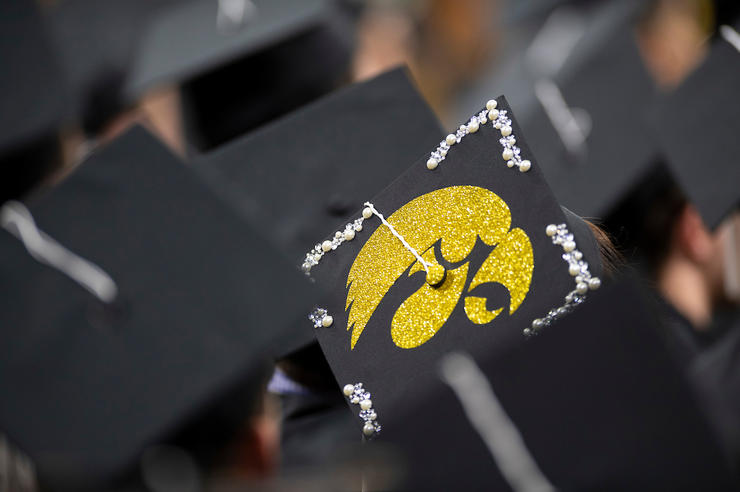Finding new ways to tell important stories
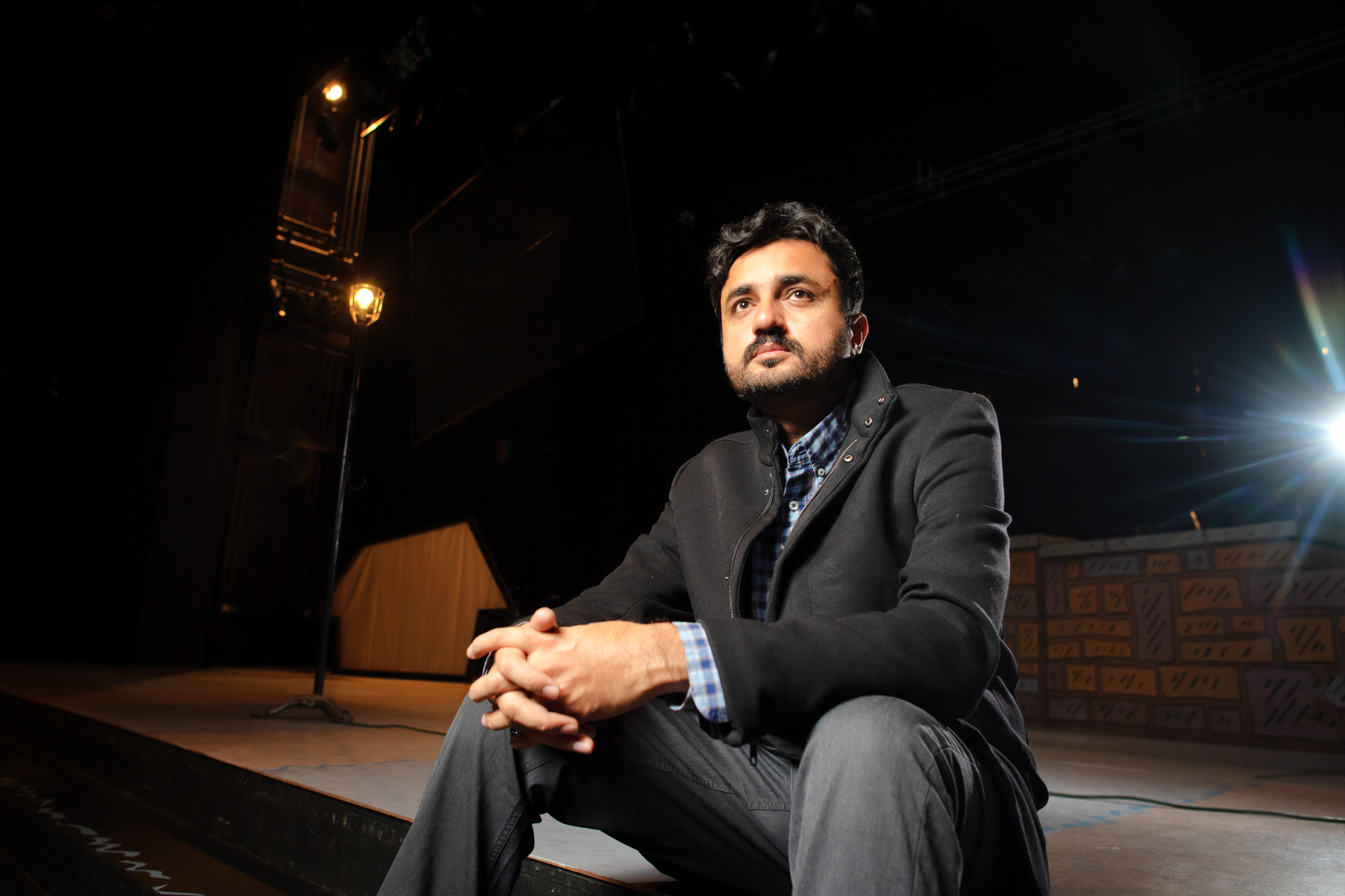
- Degree: MFA in playwriting
- Hometown: Village near Sargodha, Pakistan
- Plans after graduation: Basra’s play The Job will be produced in spring 2022 by Storefront Theatre of Indianapolis, and he is developing a TV pilot and working on a screenplay.
Ikram Basra will graduate in December 2021 from the Iowa Playwrights Workshop. But in his native Pakistan, he was better known as a poet and journalist.
In fact, it was poetry that brought Basra to the University of Iowa for the first time. He was invited to participate in Iowa City poetry readings, and it was during his visit that Basra learned about Iowa’s many writing programs.
“I actually wanted to apply for the Iowa Writers’ Workshop for poetry, but I write in Urdu, so I didn’t know how that might work in translation,” Basra says. “I had done some songwriting for a Bollywood film and studied screenwriting in Mumbai, and I learned I could take screenwriting classes through the Playwrights Workshop, so I got to translating my work and applied. I didn’t have a rich theater background, but I remember telling them in the interview that I had a lot of important stories that were worth telling.”
In fact, Basra has been known for his stories since he was little. Whenever there was a school function, he would be asked to write something—a parody or other short scene to be performed.
“That’s how it started,” Basra says. “I didn’t think I would actually be a playwright one day.”
Basra says he grew up surrounded by literature. His father, Ch. Muhammad Zubair Basra, writes regularly, and the two often discuss literature. Basra says he also was very close to his grandmother who, while not formally educated, knew a lot about Sufi literature as well.
“So, I was introduced at a young age to different important South Asian poets, and I think that is a huge part of what I’m doing today,” Basra says.
Basra says a teacher inspired him to venture beyond his small village near Sargodha, Pakistan, where he grew up with his parents, four siblings, and large extended family.
“I come from a farming background, and we had some buffaloes on the little piece of land we own. The teacher told me, ‘Sell one buffalo and go to a big school in a big city,’” Basra says. “That was the first time that I thought I should leave this place and go somewhere else.”
He went to college in Lahore, Pakistan, where he studied journalism and political science.
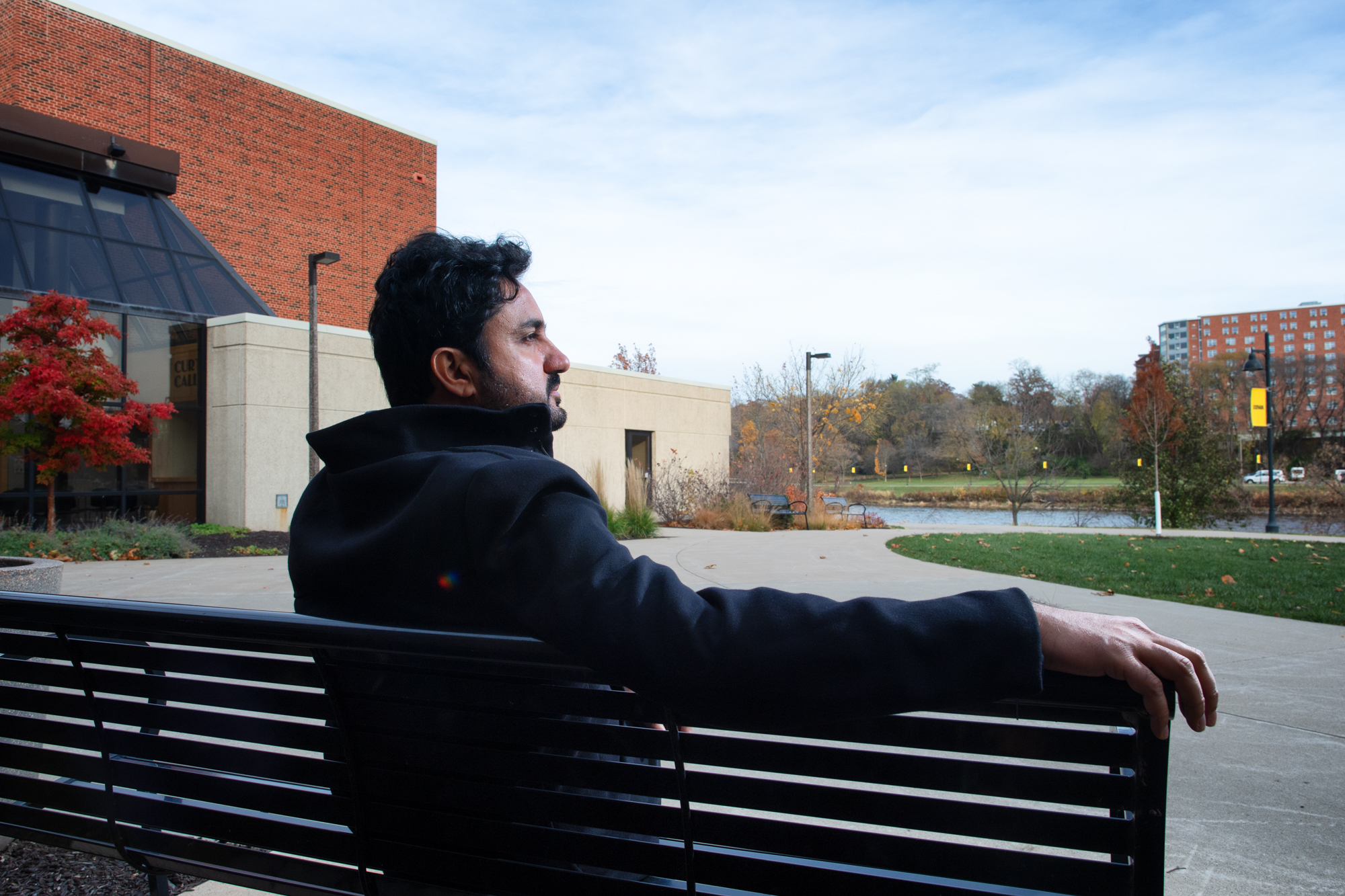
“Plays are just so delicious, and it’s easy to involve poetry in them. I always have somebody who’s a little poetic in my scripts.”
Basra says his life in Pakistan is divided into two parts: Before 9/11 and after 9/11.
“I was a teenager when 9/11 happened, and I remember that before that, everything was so pure and innocent in our society, and it was safe,” Basra says. “There was a lot of tourism in Pakistan. People would come from all over the world to see it. It’s not a very developed country, but it is very beautiful.
“But that changed after 9/11. The whole country seemed to become a security check post. Thousands of innocent people in my country lost their lives, and it was not directly our war. Not even one Pakistani was involved in 9/11. But, you know, there were holes in Pakistan’s foreign policy, and we got involved and suffered for it.”
After college, Basra started working at a television news station. While he says he felt like he was doing something good for his people, he became uncomfortable with how his country was being portrayed in the global media.
“Every corner of the world was being recorded and was being shown in every corner of the world,” Basra says. “But unfortunately, the things that were being recorded in my country were not very nice. The things that really exist in our society, our people, and our culture—purity, hospitality, generosity, love for literature and books, love for values—were not being shown to the rest of the world.”
Meanwhile, he was still writing poetry—and beginning to receive invitations to international readings.
“I started to think there are other ways to express myself and to tell these stories that are not being told. They’re important stories that belong to human beings and are worth telling,” Basra says. “But when it came to shaping them and making something out of them, I started learning that when I got to the University of Iowa.”
Basra says one of the main challenges he faced when starting in the Playwrights Workshop was that he still thought like a poet. However, one of his professors, Art Borreca, co-head of the Playwrights Workshop and co-head of dramaturgy, saw potential for one of his poems to be reworked for the stage.
The six-line poem focused on freedom fighter Udham Singh, who is known for killing the man considered responsible for the 1919 Jallianwala Bagh massacre in Amritsar, India.
“He thought the poem had good bones and structure. And the very next year I was able to see that play produced right in front of me,” Basra says. “It was a fascinating experience for me to see how something you carry with yourself as a writer in your mind has legs and can go anywhere if you just allow yourself, and if you have proper mentorship.”
Borreca says Basra is an exceptional student and writer and a model citizen of the Playwrights Workshop community.
The University of Iowa’s MFA program in playwriting is an intensive three-year program dedicated to training talented playwrights and collaborative theater artists who will lead the theater world in the creation of new works and the training of future generations of playwrights. Graduates have found success in every medium of dramatic writing, including stage, screen, television, and nontraditional performance.
“He is a gentle soul who engages fully with every person and work he encounters, and who gives the fullest possible support to the work of his colleagues,” Borreca says. “Ikram has fostered cross-cultural understanding through his plays and their production. His plays are based in deep research into historical and contemporary events in South Asia, or in his experience as a journalist, in which capacity he has been a witness to the ravages of the recent history of Pakistan. Ikram translates these events into drama with great empathy and with the sensibility of a poet.”
Along with Iowa’s faculty, Basra says working with fellow theater colleagues, such as directors, stage managers, and dramaturgs, made him a better playwright.
“They are the people who can see the play on the stage; that’s not always true of playwrights,” Basra says. “I especially had trouble with that because I am a poet first and I would just reflect rather than think about the action. Working with dramaturgs and directors and stage managers helped me make sense of what I was trying to say and do, and I learned a lot about my own plays from them.”
Basra says his mind was opened at Iowa to the endless possibilities in playwriting through workshopping his colleagues’ plays and watching productions on campus and in his courses.
After watching Spalding Gray’s one-man show Swimming to Cambodia on video in class, Basra started writing a play largely based on his own experiences in post-9/11 Pakistan.
“I didn’t know a play could be like that,” Basra says about Swimming to Cambodia. “Writing a one-man show was a huge change for me because the first play I wrote at Iowa had 37 characters.”
Basra’s play The Job was featured in the 2021 Iowa New Play Festival, presented at the 2021 Global Empathy Conference in Australia, and will be produced in spring 2022 by Storefront Theatre of Indianapolis. His most recent play, Life is Not a Dream, was workshopped at the end of November, and Basra says the feedback from fellow students and faculty was overwhelmingly positive.
“This place is famous across the world for writing. And it’s famous for writing because of people like Art Borreca who work day and night listening to all kinds of ideas that we bring and helping us learn how to shape them and make something out of them.”
While his focus the last couple of years has primarily been on playwriting, Basra hasn’t abandoned his poetry. He still writes poems and does readings, including one this past fall in Chicago.
He also incorporates poetry into his plays.
“Plays are just so delicious, and it’s easy to involve poetry in them,” Basra says. “I always have somebody who’s a little poetic in my scripts.”
As he prepares to graduate, Basra says he plans to continue writing for the stage and screen. Along with his play being produced, he’s also developing a TV pilot and working on a screenplay.
Basra says the best advice he can give any writer is simple: Write, write, write. He also urges them to not forget the power they wield as writers.
“If 300 people show up to watch your play, you don’t know what’s going on in their lives,” Basra says. “You have mastered your craft and you’re good with your words. But remember that your words are powerful and those minds are innocent, fragile, and sometimes vulnerable. So, whatever you want to say, just keep those hundreds of minds and hearts in your mind.”
Basra also encourages prospective or current students in the Playwrights Workshop to believe in their professors.
“This place is famous across the world for writing,” Basra says. “And it’s famous for writing because of people like Art Borreca who work day and night listening to all kinds of ideas that we bring and helping us learn how to shape them and make something out of them. They are like family. They really want to help us and are rooting for us. So, just listen to them and it will take you somewhere.”
